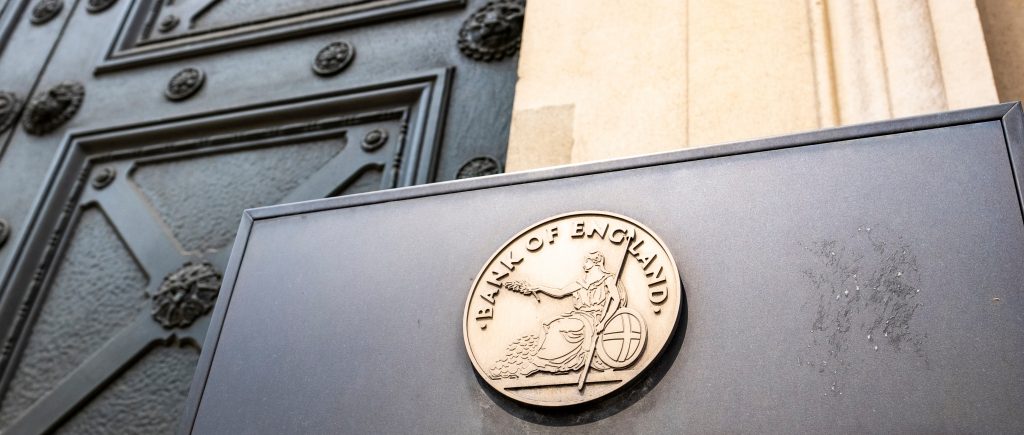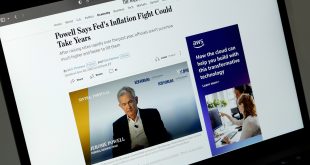The Bank of England (BoE) will have its monetary policy decision.
Accord points to a 50 bps rate hike, but a 75 bps is not ruled out.
However, analysts at Danske Bank expect fewer hikes than priced in markets as they emphasize the rising recession risk in the UK.
On Thursday, Britain’s new leader, Liz Truss, capped elevated consumer energy bills for two years to defend the economic shock of war in Ukraine with measures likely to cost the country upwards of 100 billion pounds ($115 billion).
We expect the BoE to effectively eliminate forward guidance, similar to both the ECB and the Fed.
Markets are updating the BoE call and now expect 50bp hikes in September, November, and December, followed by a final 25bp hike in February 2023 to be lifted to 3.25% (from 2.50%). We see the possibility for further hikes in 2023, if we see underlying inflation pressures to prove persistent.
We expect outright government bond selling to commence with a proposed bond sales of GBP 10bn per quarter, totaling a reduction in bond holdings of GBP 80bn over twelve months.
With Britain facing a lengthy recession sparked by nearly quadrupling household energy bills, Truss set out what she described as a bold and immediate action to protect consumers and businesses just three days after she took office.
“This is the moment to be bold. We are facing a global energy crisis, and there are no cost-free options,”she told parliament.
“We are supporting this country through this winter and next, and tackling the root causes of high prices so we are never in the same position again.”
She said supply would also be stepped up, with a moratorium on fracking dropped and new oil and gas exploration licenses issued for the North Sea.
With wholesale gas prices remaining unstable, the government did not put a price on the combined package. Still, it is expected to run into the tens of billions of pounds and be funded by government borrowing.
Economists believe the plan will likely add more than 100 billion pounds to Britain’s debt. At the same time, Deutsche Bank has estimated that the energy price offset plus tax cuts that Truss has also promised could cost 179 billion pounds together.
That would be around half the sum Britain spent on the COVID-19 pandemic.
Separately, the Treasury and Bank of England will also address unique liquidity requirements faced by energy firms that Truss said would be worth 40 billion pounds.
On the other side, The pound fell against the dollar on Wednesday to levels last hit in 1985.
Sterling rose by around half a cent against USD and EUR as Truss spoke, but later lost its gains. Britain’s government bond market – which fell heavily in the weeks leading up to Thursday’s announcement – extended losses, elevating 10-year yields to a high since 2011.
European energy prices started to rise as the world emerged from COVID-19 lockdowns and then surged in February following Russia’s invasion of Ukraine.
The government expects the package to curb inflation by up to 5 percentage points. Consumer price inflation in Britain jumped to 10.1% in July, the highest since February 1982, and was forecast by the Bank of England to exceed 13% in October.
The quarterly survey conducted by the Bank of England (BOE)/ Ipsos showed that the public’s expectations in Britain for inflation for the coming year surged.
UK public inflation expectations for the coming year 4.9%.
UK public inflation expectations for 12 months after that are 3.2%.
UK public inflation expectations for 5 years’ time are 3.1%.
Net public confidence in BOE-7% vs -3% in May.
UK public’s year-ahead inflation expectations are the highest since the survey began in 1999.
With the worsening in the cost-of-living crisis, we see room for only a further 50bps increase in the Bank Rate to 2.25%, before a pause after that.
That said, we bear in mind that the BoE has warned that ‘policy is not on a pre-set path’, as it projects a UK recession will begin in the fourth quarter and last all the way through next year
 Noor Trends News, Technical Analysis, Educational Tools and Recommendations
Noor Trends News, Technical Analysis, Educational Tools and Recommendations





